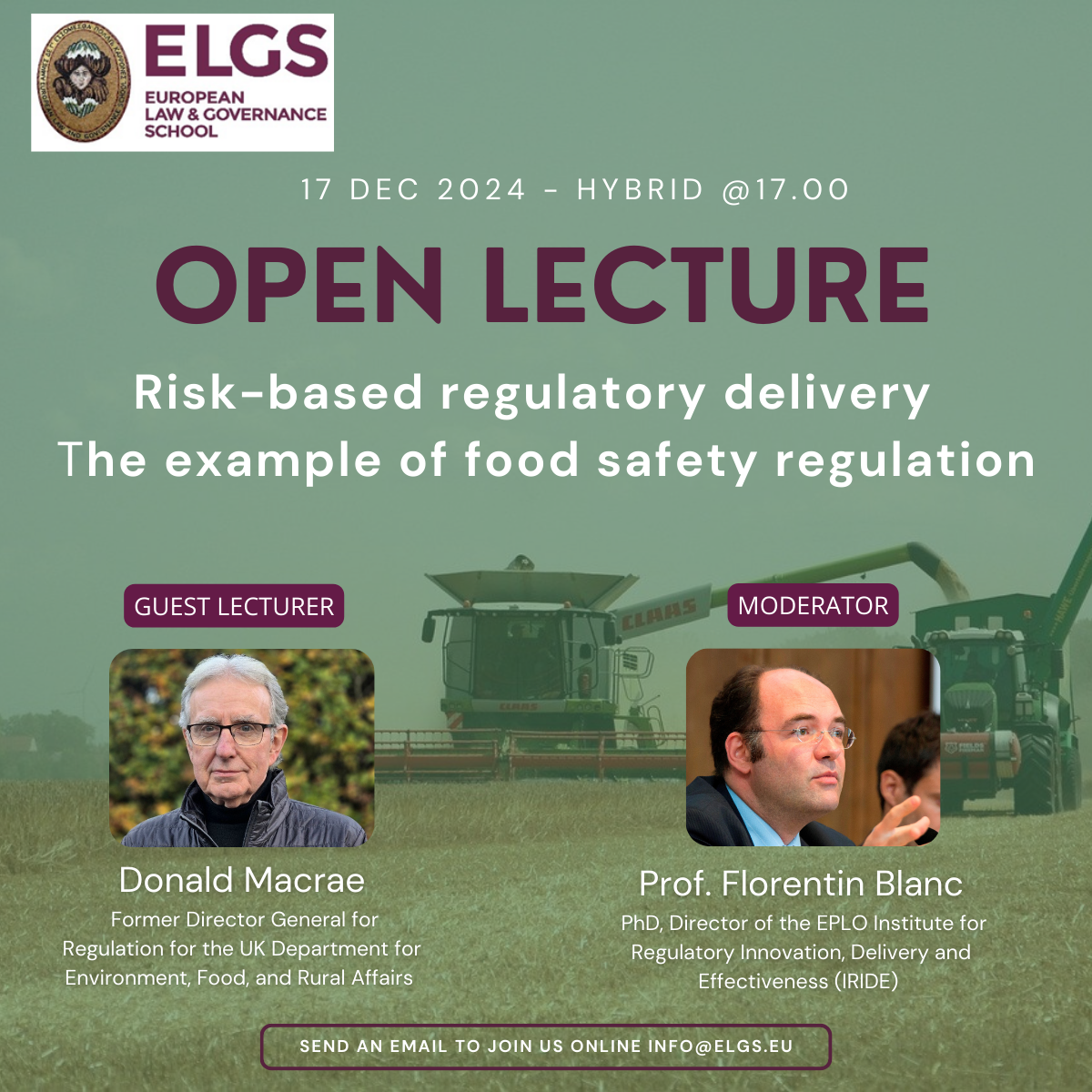Open Lecture on “Risk-based regulatory delivery – the example of food safety regulation”
The ELGS organized an Open Lecture for its students and the public, on Tuesday, December 17th, 2024, from 17:00 to 20.00(Athens Time Zone). This open lecture was entitled “Risk-based Regulatory Delivery – the Example of Food Safety Regulation.” The lecture was delivered by Donald Macrae, Former Director General for Regulation for the UK Department for Environment, Food, and Rural Affairs, and moderated by Dr. Florentin Blanc, PhD, Director of the EPLO Institute for Regulatory Innovation, Delivery and Effectiveness (IRIDE).
FEW WORDS ON THE TOPIC
The lecture was part of the module on “Risk-based regulatory delivery” and will use the example of Food Safety regulation. It illustrated how the outcomes intended by the regulations are delivered in a range of countries, based on the direct experience of two practitioners who have done this in many countries across the world over the last 20 years.
Food Safety is a very challenging sector to work in because it is such a basic issue for mankind. To some extent, it is a 21st-century problem because of the evolution of food production, its distribution, storage, retailing, catering and consumption. More people can be poisoned in more ways than ever before, and tens of thousands of people can be poisoned across multiple countries by the same original fault in production. Its development maps across to the economic development of countries, especially those with a growing middle class, and it can be a high-profile political concern in some cultures. Trading in food has been the most fundamental market for any society, and it continues to have a profound socio-economic impact, mapping across at least 12 of the Sustainable Development Goals. The lecture will start by exploring exactly which problem we’re trying to solve!
Food Safety is such a pervasive priority that it interfaces with many other key government agendas, and this leads to a need to set boundaries for what is properly a food safety issue. This also has significant institutional consequences – what sort of regulatory agency is needed, where should it be located in government, and what budget should it have? Is it primarily a part of Agriculture or is it really about Public Health – or is it that country’s major export, so it belongs with Trade? Is it a rural issue or an urban issue? And there is a growing concern about the environmental impact of land use for livestock.
Food Safety has often been the pioneer of reforms in regulatory delivery. Compliance with the regulations is often too simplistic an approach to delivering the regulatory objectives. Improving compliance may need extensive reforms in the operational context of the food businesses, such as ensuring that street traders have access to electricity, clean water and waste management. Applying risk has been essential to prioritise the application of the regulations, leading to the pragmatic concept of “broadly compliant” being enough to deliver the intended outcomes. It has also led in one country to a sort of personalized regulation, where a company with many outlets can agree a specific delivery plan







